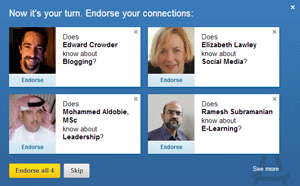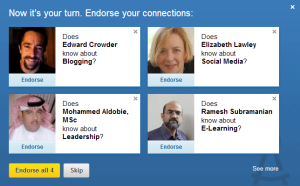
Google selected me as one of (the many) Google “Glass Explorers”, thanks to a tweet I sent saying how I would use Google Glass, namely:
What this means is that I will, presumably over the next few months, be offered the opportunity to buy Google Glass before most other people get to. Yay! But it is not all good news. I get to do this only if I shell out $1,500 and head out to L.A. to pick them up.
Fifteen hundred dollars is a lot of money. I’d be willing to spend a sizable amount of money for what I think Glass is. Indeed, although $1,500 is on the outside of that range, if it did all I wanted it too, I might still be tempted. But it is an awful lot of money. And that’s before the trip to L.A.
To be clear, the decision is mostly “sooner or later.” I’ve wanted something very like Glass for a very long time. At least since I first read Neuromancer, and probably well before that. So the real question is whether it’s worth the premium and risk to be a “Glass Explorer.”
As with all such decisions, I tend to make two lists: for and against.
For:
- I get to play with a new toy first, and show it off. Have to admit, I’m not a big “gadget for the sake of gadgets” guy. I don’t really care what conclusions others draw relating to my personal technology: either whether I am a cool early adopter or a “glasshole.” I use tech that works for me. So, this kind of “check me out I got it first” doesn’t really appeal to me. I guess the caveat there is that I would like the opportunity to provide the first reviews of the thing.
- I get to do simple apps: This is actually a big one. I’m not a big programmer, and I don’t have a lot of slack time this year for extra projects, but I would love to create tools for lecturing, for control, for class management, and the like. And given one of the languages they support for app programming is Python–the one I’m most comfortable in–I can see creating some cool apps for this thing. But… well, see the con column.
- I could begin integrating it now, and have a better feel for whether I think it will be mass adopted, and what social impacts it might have. I am, at heart, a futurist. I think some people who do social science hope to explain. I am interested in this, but my primary focus is being able to anticipate (“predict” is too strong) social changes and find ways to help shape them. Glass may be this, or it may not, but having hands on early on will help me to figure that out.
Against:
- Early adopter tax. There is a lot of speculation as to what these things will cost when they are available widely, and when that will be. The only official indication so far is “something less than $1,500.” I suspect they will need to be much less than that if they are to be successful, and while there are those throwing around numbers in the hundreds, I suspect that price point will be right around $1,000, perhaps a bit higher. That means you are paying a $500 premium to be a beta tester, and shouldering a bit of risk in doing so.
- Still don’t know its weak points. Now that they are actually getting shipped to developers and “thought leaders,” we might start to hear about where they don’t quite measure up. Right now, all we get is the PR machine. That’s great, but I don’t like putting my own money toward something that Google says is great. I actually like most of what Google produces, but “trust but verify” would make me much more comfortable. In particular, I already suspect it has two big downvotes for me. First, I sincerely hope it can support a bluetooth keyboard. I don’t want to talk to my glasses. Ideally, I want an awesome belt- or forearm-mounted keyboard–maybe even a gesture aware keyboard (a la Swype) or a chording keyboard. Or maybe a hand-mounted pointer. If it can’t support these kinds of things, it’s too expensive. (There is talk of a forearm-mounted pad, but not a lot of details.)
- Strangleware. My Android isn’t rooted, but one of the reasons I like it is that it *could* be. Right now, it looks like Glass can only run apps in the cloud, and in this case, it sounds like it is limited to the Google cloud. This has two effects. First, it means it is harder for the street to find new uses for Glass–the uses will be fairly prescribed by Google. That’s a model that is not particularly appealing to me. Second, developers cannot charge for Glass apps. I can’t imagine this is an effective strategy for Google, but I know from a more immediate perspective that while I am excited to experiment with apps (see above) for research and learning, I also know I won’t be able to recoup my $1,500 by selling whatever I develop. Now, if you can get direct access to Glass from your phone (and this would also address the keyboard issue), that may be another matter.
- No resale. I guess I could hedge this a bit if I knew I could eBay the device if I found it wasn’t for me. But if the developer models are any indication, you aren’t permitted to resell. You are out the $1,500 with no chance of recovering this.
I will keep an open mind, and check out reviews as they start to trickle in from developers, as well as reading the terms & conditions, but right now, I am leaning to giving up my invite and waiting with the other plebes for broad availability. And maybe spending less on a video enabled quadracopter or a nice Mindstorms set instead.
Or, someone at Google will read this, and send me a dozen of the things as part of a grant to share with grad students so we can do some awesome research in the fall. But, you know, I’m not holding my breath. (I do hope they are doing this for someone though, if not me. If Google is interested in education, they should be making these connections.)

, Michael Kandel (trans.)



Twentieth Anniversary
Twenty years ago today, Jamie and I were married. This picture, taken some time after we were married, probably deserves some explanation. A group of us had discovered that “Sometime’s Funky Street Cafe†(a place down the street from the 500 Rakan Gyokuhoji Temple that seemed to be run by teenagers) carried Red Stripe Beer, and made a night of drinking a lot of it. Having closed down the place, our mötley crüe had three options: go to John Festa’s, the depressing expat hangout downtown; move the celebration to one of our flats, whispering to avoid scandalizing the neighbors; or climb Mount Fuji. The answer seemed obvious enough, so we dropped by a liquor store to buy a giant bottle of sake to open at the peak (the owner was kind enough to sell us a six pack of tiny bottles instead) and hopped the last train and bus to Fuji-san. This photo is probably by 8th station, by which time we were all pretty sober, now determined to reach the summit by dawn. And no, I wasn’t a Tri-Delt; my debonair wife had lent me a sweatshirt since I at some point in the evening decided to do this in a T-shirt.
I think it would have been impossible for us to even begin to guess how our lives would play out over the next twenty years. We are both very different people today than when this photo was taken and I mean much more than the fact that I would be physically unrecognizable to my 21-year-old self. We have become ourselves in ways that I think we are both more happy about than not. Of course, everybody changes, and sometimes that means they grow apart, and that is fine. But that has not been the case for us. At this point in our lives, we’ve been married longer than we haven’t. So much of who I am is indistinguishable from my relationship with my spouse that I cannot imagine being myself without her.
When we got married, our promise was that we would challenge each other to become better people. I don’t know how well I’ve kept that promise to Jamie, but all of those things I am most proud of in myself I owe to her influence. Most people questioned my decision to ask Jamie to marry me when we were both so young. (And many thanks to those of you who either didn’t question it, or didn’t voice those questions.) I will now tell a story that I have never told anyone, including Jamie.
Several months before I asked her to marry me, I had a nightmare. I was 40, but that wasn’t the nightmare. I was back in Southern California, having lived a daring life of intrigue, on leave as a young ambassador to a far off land. I hopped off my motorcycle at a stylish restaurant. When I was seated, I caught the eye of someone who looked familiar: Jamie. After a brief career on the stage, she had opened a series of popular restaurants. We were both successful in our careers, dashingly good looking, and had found our paths through life. And the moment our eyes met, we knew what we had lost. Twenty years we could have been together, and we had at some point thrown that away for what was behind the curtain. I woke up with a rock in the pit of my stomach. The easy thing is to not realize what is right there, right now. To believe that it can’t last.
A few nights ago, we watched O, Brother Where Art Thou, since both boys like that old-timey sound and we had conveniently forgotten about a couple of scenes (Klan rally, frog murder) that would need a bit of explanation. At the beginning of the movie, the analog of Tiresias tells the Soggy Bottom Boys that they will find a treasure, but not the one they seek. The blind seer rides through town at the conclusion, just as the protagonist passes with his newly reunited family. I was explaining to Jasper the meaning that the (not always subtle) Coen Brothers were imparting, and found myself in tears. Here was my treasure, Jamie and our two sons, and I am the luckiest man in the world. All because I asked, and she said yes.
Share this: